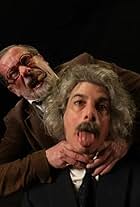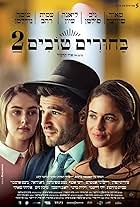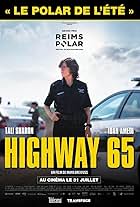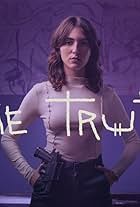
Nozz
Joined May 2000
Welcome to the new profile
We're still working on updating some profile features. To see the badges, ratings breakdowns, and polls for this profile, please go to the previous version.
Ratings470
Nozz's rating
Reviews473
Nozz's rating
I'm not sure this isn't the same film that IMDB lists as Rabbi Heller Blues. Writer/director Renen Schor tells of Rabbi Heller his grandfather, who was unhappy that Schor declined a life of religious study and instead embraced filmmaking - even though the film he made, Late Summer Blues, was considered an instant classic of Israeli cinema. Why should we care? Because as he looks back, Schor feels a lot of love behind the disagreement, and because the story brings us nostalgically back to the Israel of half a century ago by way of many well selected and well arranged clips and photos, backed by attractive music from Ehud Banai. It makes for a wistful movie, maybe on the one hand not quite as impactful for the world at large as for Israelis who will recognize some landmarks and some scenery, but still on the other hand offering universal appeal in its portrayal of the younger generation as the retroactively loyal opposition.
Helpful•00
This movie invites comparison with the rather disappointing 1969 "Picasso Summer," which was also about going to the picturesque environs of a legendary painter in hopes of meeting him. But this time instead of a rather boring couple, we have some feisty revolutionaries on the run from the law. There are beautiful young women too, and it may be my fault (I was watching the subtitles) but I didn't fully understand the relationships between the men and the women until suddenly they became important late in the movie. I'd thought it was enough to follow the attempts at meeting Dali, and I found the on-and-offness of that quest abrupt and repetitive. The movie does capture the sad emptiness separating Dali's world of imagination (or anyone's) and our material reality. Once or twice, I saw Dali on TV once or twice during his lifetime and I remember that failure to embody his own vision in his own being.
Helpful•00
I saw the preview and wanted to watch this movie if only for the wonderful stone alleyways of Spain (and the occasional landscape). I found that the director is also fond of faces illumined by the ostensibly pre-electric lighting of the humble homes.
The protagonist is a progressive schoolteacher who is unwelcome in a Spanish village that is leaning toward fascism in the 1930s. He was a real person, and there is no doubt that he fully deserves to be memorialized on film, but his portrayal here as mister wonderful is a little over the top. His only fault is his incautiousness, which he's aware of and doesn't consider a fault.
So even though there's an attempt to add a dimension by means of a second plot set during the present day, the movie doesn't offer a lot of intellectual oomph to go with its beauty and well-meaningness.
The protagonist is a progressive schoolteacher who is unwelcome in a Spanish village that is leaning toward fascism in the 1930s. He was a real person, and there is no doubt that he fully deserves to be memorialized on film, but his portrayal here as mister wonderful is a little over the top. His only fault is his incautiousness, which he's aware of and doesn't consider a fault.
So even though there's an attempt to add a dimension by means of a second plot set during the present day, the movie doesn't offer a lot of intellectual oomph to go with its beauty and well-meaningness.
Helpful•00
























